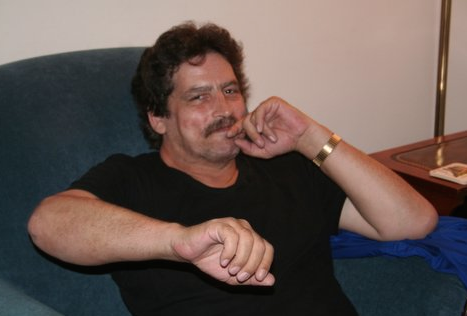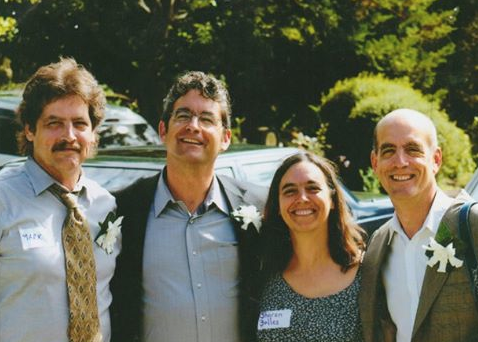Upon the Death of My Son
Author: Dick Bolles

As a parish priest (Episcopal) for many years, I dealt with one or two families each week, who lost a loved one. And then things came closer to home as my only brother was assassinated, and I wept myself (off and on) for two years. And now, my Son. It is never easy to watch one of your children die, no matter how young or how old. Mark suffered a massive cerebral hemorrhage following surgery on his leg, and died this morning, July 11, 2012. He was 57, and such a luv, a gifted guitar player, fine writer, brilliant, witty, playful, charming. The good thing is he has left us with a whole memory scrapbook, filled with memories of fun times together. Yet we are all, at the moment, heartbroken of course. I have been weeping buckets.
"Mark was a genius with an incredible heart. He designed and built a remarkable string winding machine, and wrote a string design software program that has allowed me to have a wonderful business all these years. Every time I spoke with Mark I told him how brilliant he was .Last time we talked he had me laughing, such a sense of humor. " Laurie Nielsen
1. Tears will come, for almost all of us. They are a natural part of being human. But they come like the tides of the sea. Tides in, tides out. Long stretches without tears, then suddenly, often in the midst of laughter, the tears will spring, flowing down our cheek. Welcome them, when they do come; they are part of the cleansing of the soul, robing it in white celestial garments.
2. You will cry in public, ruining your image of yourself (and your makeup). Others will see that you are crying. So what? We live in the midst of a stupid culture with its stupid little goals ( "Oh good, I didn't break down!") Now, just why "I cried" is held to equal "I broke-down" I have no idea. In grieving times, the medal belongs to the one who allows the tears to flow, when they come, proving they are human, not to the one who chokes them back, trying to be unhuman. Indeed, I have seen grief last much much longer in the lives of those who set as their beginning goal "I will not break-down". You are human, and it's just fine if others see that.
3. Don't try to rewrite the play called "Life." Set aside the "oh, if only I had"s, or the "what if"s. The play, with him in it, is done. The curtain has come down. Turn your face toward the future, not the past. Whatever you admired about him, try to put into your own conduct and life, in the days to come. Did he see the funny side of things? Try to do more of that, yourself, from now on. Was he generous? Be more so, in your own life, from now on. Did he bring beauty into people's lives? Set that, as your goal, henceforth. Let the light that was in him now shine from your face.
4. Finally, in your thoughts and reminiscing, try to hold on to two streams of thought at the same time: what it is you've lost, what it is he gained. You lost: a ton of future encounters and times together that could have been. He gained: freedom from pain, suffering, and further insults to the human body, that might have been. In Mark's case, his body was always aching and wracked with pain, after five operations on his spine, earlier in life, steel rods up his back, serious cardiovascular disease in his arteries and finally, in his brain. Now he is free of all that. Let the tears mingle: tears of loss, for ourselves; tears of gratitude, for his release.
